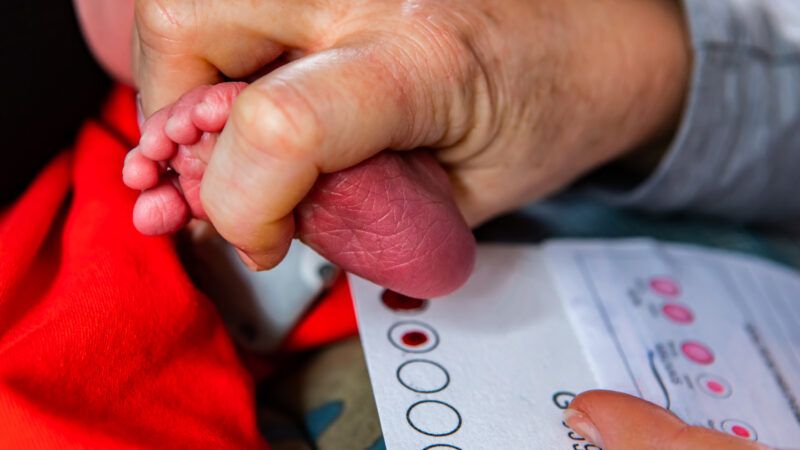New Jersey Secretly Stores Your Newborn's Blood for Decades
According to a new lawsuit, New Jersey has handed over leftover blood from newborn genetic testing to law enforcement and sold it to third parties.

In every U.S. state, healthcare workers perform blood tests on newborn infants to check for a range of genetic disorders. However, in New Jersey, the state Department of Health stores infants' blood for up to 23 years without informing parents or seeking their consent.
In addition to merely keeping the blood, New Jersey reserves the right to do whatever it wishes with the leftover blood, including selling it or handing it over to the police without a warrant. However, a new lawsuit from the Institute for Justice (IJ), a public interest law firm focused on government abuse, aims to challenge this status quo.
"It's incredibly misleading for the state to tell parents they are simply drawing blood from their babies to test for diseases when it could be sold to third parties or used by other government agencies to build invasive databases or registries," IJ Attorney Brian Morris said in a press release last week. "As Texas and other states have shown, these concerns aren't hypothetical."
According to IJ's complaint, since the 1970s, infants born in New Jersey have been required to be tested for a battery of over 60 disorders, such as cystic fibrosis and sickle cell anemia. Shortly after birth, each infant's heel is pricked, and the blood is collected on a paper card, which is sent to be tested at a lab run by the New Jersey Department of Health.
Parents aren't asked for consent before the blood test. Instead, they are given a handout about the test along with the large packet of paperwork all parents receive when they leave the hospital. A parent can only opt out of the testing if they object to it on religious grounds—though the suit notes that there is no legal obligation that parents be notified of their right to object on religious grounds.
What's more, after the test results are complete, parents don't have direct access to them. They are sent to the hospital where the child was born and to their primary care doctor when the results are normal.
After testing, the dried blood that is left on the cards is not discarded but instead stored by the state, which reserves the right to hand it over to law enforcement or even sell it to outside businesses. This practice, according to the lawsuit, violates the Fourth Amendment rights of New Jersey children.
"New Jersey has already given some blood to law enforcement officers without a warrant," the complaint reads. "Other states with similar schemes have been caught using babies' blood in alarming ways. In Texas, for example, a lawsuit revealed that the state was turning over blood to the Pentagon to create a national (and someday, international) registry….On information and belief, New Jersey also gives or sells blood from its baby blood stockpile to other third parties. This could include, but is not limited to, researchers, companies, or other government agencies."
It seems like a no-brainer that the state shouldn't store children's blood for decades without their parent's consent—much less sell it to third parties or hand it over to law enforcement. But New Jersey continues doing just that to the over 100,000 babies born in the state each year.
"It's not right that the state can enter an incredibly intimate moment, the tender days of childbirth, and take something from our children which is then held on to for 23 years," said Hannah Lovaglio, a mother of two and a plaintiff in the suit. "The lack of consent and transparency causes me to question the intent and makes me worried for my children's future selves."


Show Comments (16)